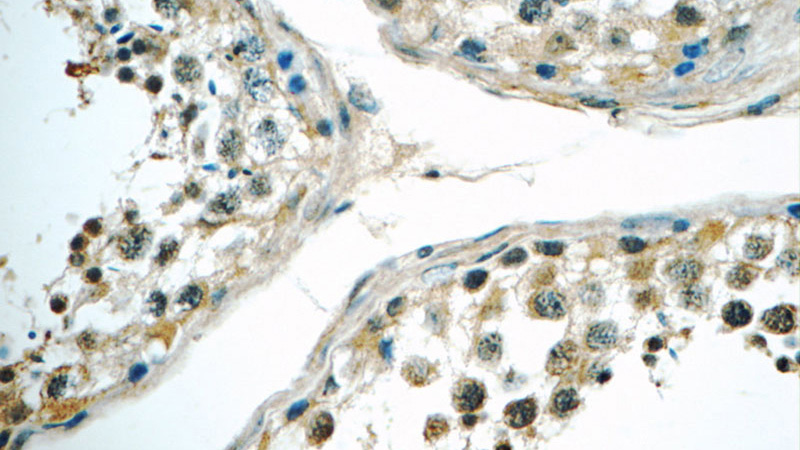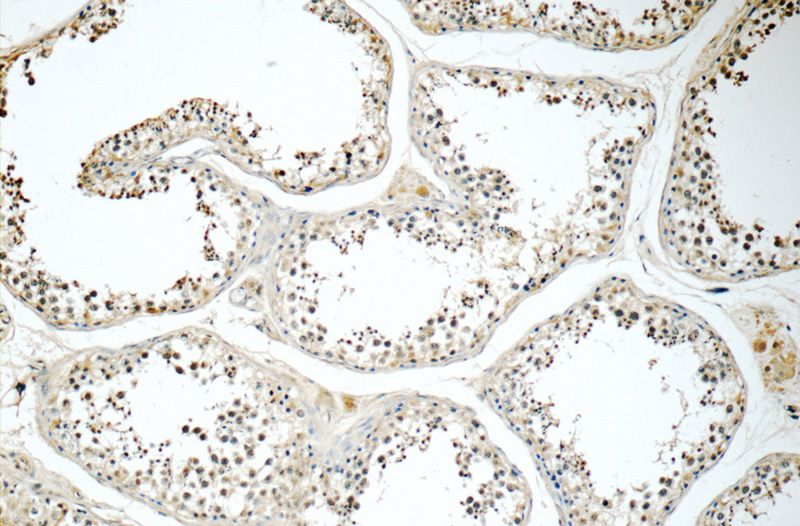-
Product Name
SIK1 antibody
- Documents
-
Description
SIK1 Rabbit Polyclonal antibody. Positive IHC detected in human testis tissue, human colon cancer tissue, human stomach tissue.
-
Tested applications
ELISA, IHC
-
Species reactivity
Human,Mouse,Rat; other species not tested.
-
Alternative names
MSK antibody; salt inducible kinase 1 antibody; SIK antibody; SIK 1 antibody; SIK1 antibody; SNF1LK antibody
-
Isotype
Rabbit IgG
-
Preparation
This antibody was obtained by immunization of SIK1 recombinant protein (Accession Number: NM_173354). Purification method: Antigen affinity purified.
-
Clonality
Polyclonal
-
Formulation
PBS with 0.1% sodium azide and 50% glycerol pH 7.3.
-
Storage instructions
Store at -20℃. DO NOT ALIQUOT
-
Applications
Recommended Dilution:
IHC: 1:20-1:200
-
Validations

Immunohistochemistry of paraffin-embedded human testis tissue slide using Catalog No:115229(SIK1 Antibody) at dilution of 1:50 (under 40x lens)

Immunohistochemistry of paraffin-embedded human testis tissue slide using Catalog No:115229(SIK1 Antibody) at dilution of 1:50 (under 10x lens)
-
Background
SIK1(Salt-inducible kinase 1) is also named as SIK, SNF1LK and belongs to the CAMK Ser/Thr protein kinase family. It associates constitutively with the NK regulatory complex and is responsible for increases in its catalytic activity following small elevations in intracellular sodium concentrations(PMID:17939993). SIK1 is required for phosphorylation of class II HDACs and for expression of MEF2 target genes in myocytes(PMID:17468767). Defects in SIK1 may be associated with some cancers, such as breast cancers. Loss of SIK1 correlates with poor patient outcome in breast cancers(PMID:19622832).
Related Products / Services
Please note: All products are "FOR RESEARCH USE ONLY AND ARE NOT INTENDED FOR DIAGNOSTIC OR THERAPEUTIC USE"
